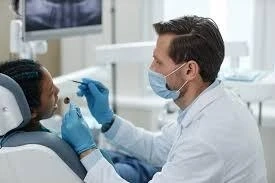Undergoing oral surgery, whether for wisdom tooth extraction, dental implants, or corrective jaw surgery, can be a daunting experience. Effectively managing pain post-surgery is crucial for a smooth recovery and minimizing discomfort. When undergoing oral surgery in Burke, follow expert tips to ensure a comfortable healing process and optimal recovery outcomes.
Here\'s expert advice on how to manage pain after oral surgery.
Understanding Post-Surgical Pain
Pain after oral surgery is a normal part of the healing process. It typically peaks within the first 48 hours and gradually subsides over the next few days. Pain management involves a combination of medications, home care practices, and lifestyle adjustments to ensure a comfortable recovery.
Medications for Pain Management
- Prescription Pain Relievers: Your oral surgeon may prescribe stronger pain medications, such as opioids, for the first few days after surgery. These medications are effective but should be used as directed to avoid side effects and dependency issues. Always follow your dentist\'s instructions carefully.
- Over-the-Counter Pain Relievers: Non-prescription pain relievers like ibuprofen (Advil) or acetaminophen (Tylenol) can effectively manage mild to moderate pain. Ibuprofen is particularly useful as it also reduces inflammation. If you are taking prescription painkillers, consult your doctor before combining them with over-the-counter options.
Home Care Practices
- Apply Ice Packs: Ice packs effectively reduce swelling and numbing pain. Apply an ice pack to the outside of your face for 15-20 minutes during the first 24 hours post-surgery. Wrap the ice pack in a cloth to prevent frostbite on your skin.
- Rest and Elevate: Rest is crucial for recovery. Avoid strenuous activities and keep your head elevated while lying down to reduce swelling. Use extra pillows to prop up your head when you sleep.
- Maintain Oral Hygiene: Keeping the surgical site clean is vital to prevent infection, which can exacerbate pain. Rinse your mouth with a saline solution (a mix of salt and warm water) several times daily, starting 24 hours after surgery. Avoid vigorous rinsing, spitting, or using a straw, as these actions can dislodge the blood clot and lead to a painful condition known as a dry socket.
- Follow Dietary Guidelines: For the first few days after surgery, stick to a soft diet. Foods like yogurt, applesauce, mashed potatoes, and smoothies are easy to eat without causing pain or irritation. Avoid hot, spicy, and crunchy foods that can irritate the surgical site.
Lifestyle Adjustments
- Avoid Tobacco and Alcohol: Smoking and alcohol can interfere with the healing process and increase the risk of complications such as infection or delayed healing. Refrain from these habits for at least a week after surgery.
- Hydrate Well: Drink plenty of water to stay hydrated. Proper hydration aids in the healing process and helps manage discomfort. Avoid caffeinated, sugary, or acidic beverages that may irritate the surgical site.
- Follow Your Dentist\'s Instructions: Adhere to all post-operative instructions provided by your oral surgeon or dentist in burke. This includes taking medications as prescribed, attending follow-up appointments, and watching for any signs of complications, such as excessive bleeding, fever, or severe pain.
When to Seek Help
While some discomfort is expected, severe or prolonged pain can indicate a problem. Contact your oral surgeon if you experience:
- Intense pain that doesn\'t improve with medication
- Excessive swelling or bruising
- Persistent bleeding
- Signs of infection, such as fever or foul-tasting discharge
- Difficulty swallowing or breathing
Managing pain after oral surgery involves a combination of medications, proper home care, and lifestyle adjustments. Following these expert tips can ensure a more comfortable and quicker recovery. Remember, effective pain management enhances your comfort, promotes faster healing, and prevents complications. Always communicate with your oral surgeon about any concerns or unusual symptoms during recovery to ensure the best possible outcome.



